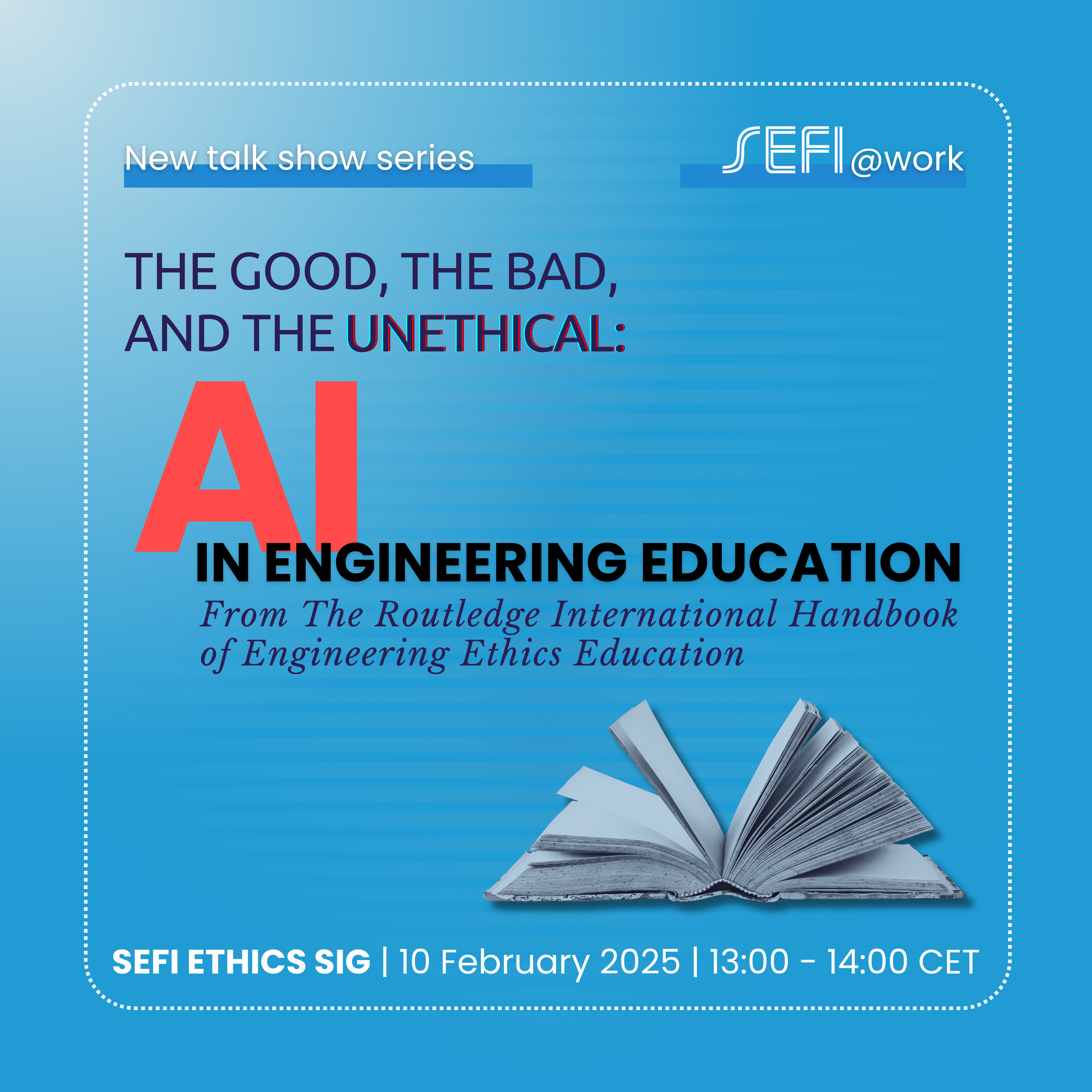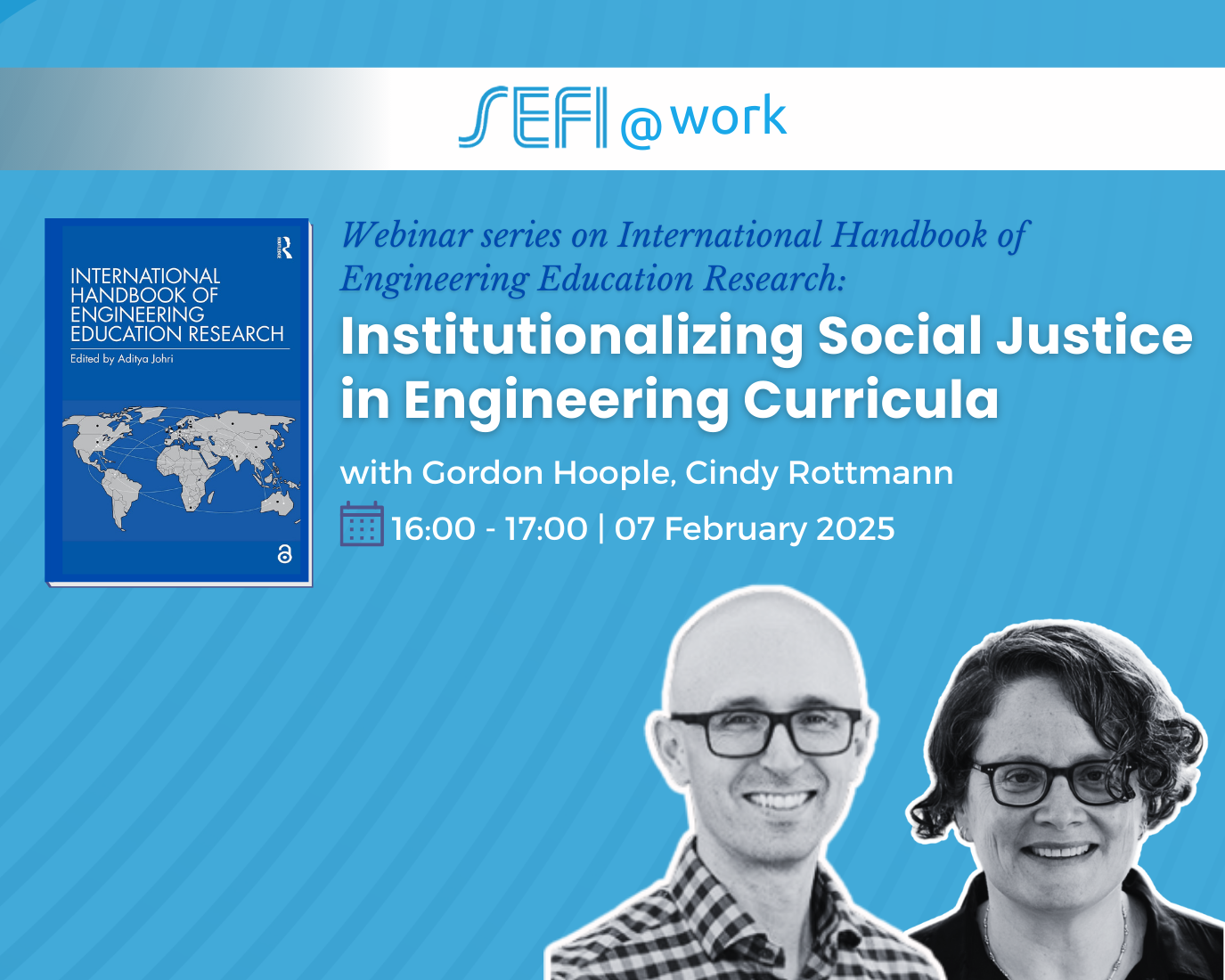The SEFI Ethics SIG is excited to invite you to the first Talk Show of…
Sustainability is a very, very fundamental value in our current society. For us, therefore it is no wonder that students themselves plea that we “must work together and be united by a great cause. This cause is sustainability. Sustainability should become our new religion!” (Aleksandra Evtimova and Simona Eichkorn, students in the Decision under Risk and Uncertainty course at TU Eindhoven, the Netherlands). In this sense, Ana M. Gómez Olmedo (ESIC University) contribution What can mindfulness offer to engineering education for sustainable development? follows the same “new religion” view to support individual students and teachers to fully experience the core fundamental value.
In all transitions of values in society, there are early and late adopters. Applied to engineering students, some need to be confronted. Natalie Wint (Swansea University, UK) states that a good sustainability course has to confront students with their neoliberal assumptions. Jonathan Truslove (Education Lead, Engineers Without Borders UK) in How Do You Create Passion And Potential To Contribute To A Safe And Just World? also stresses the need for intrinsic motivation needed for sustainability. Aida Guerra (Aalborg University, Denmark) highlights the need to take into account the differences in students in her contribution Answering different students’ attitudes for sustainability with PBL. One of the core issues is that Students need non-technical competences and rounded learning in order to achieve the SDGs, as Una Beagon (TU Dublin, Ireland) and Klara Kövesi (ENSTA, France) explain.
An educational transition is not possible without teachers. Paula Schönach, Meeri Karvinen, Noora Jaakkola (Aalto University, Finland) provide their experiences with their Pedagogical sustainability course to support teachers. Given the plethora of frameworks, methodologies, and tools available, one of the central elements in supporting teachers is, as Jordan Nickel, Rob Duimering, Ada Hurst (University of Waterloo, Canada) illustrate in their contribution entitled Navigating the complex landscape of sustainable engineering design: Skills and mindsets over methods and tools
Teachers should be supported by a university that also has to reinvent itself. It seems a chicken-and-egg discussion, but Sustainability as a university top priority starts with students making it their personal priority as Fionn Rogan (University College Cork, Ireland) elaborates. One key challenge for every university that takes sustainability in its education seriously is that it should make Advances towards Embedding Sustainable Development in Engineering Degrees, as Zaloa Aginako and Teresa Guraya (School of Engineering of Bilbao) argue for. Another key challenge for universities organizing sustainability courses is to include their ecosystem partners. How can industry play their part in developing engineering students with skills for sustainability? is a question Jennifer Bradford (Siemens) and Kirsten Williams (Petrus) tackle by explaining the Siemens Skills for Sustainability Network.
The challenges are huge, therefore students, teachers, universities and eco-system partners have to closely collaborate.
Thank you for reading our newsletter from any part of the world you are joining us, and feel welcome to contact us with news or editorial proposals!
Gunter Bombaerts and Diana Martin

